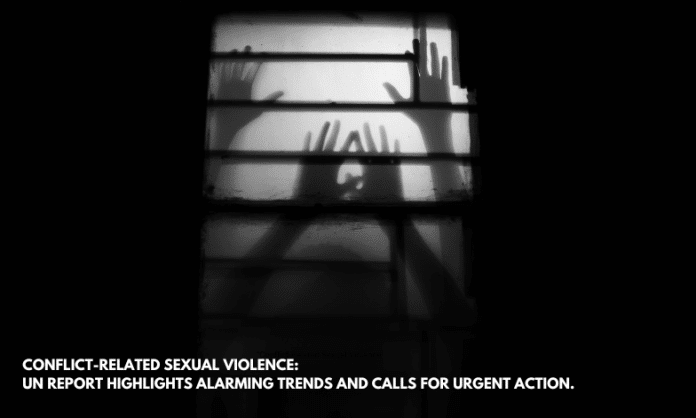Last year saw an alarming rise in militarization, illicit arms proliferation, and unconstitutional government changes. These shifts created a dangerous environment for civilians, exposing them to an intensified level of sexual violence.
The United Nations report on conflict-related sexual violence covering 2022 underscores the urgent need to address this horrific issue. It has persisted despite international efforts to eradicate it, and the report highlights the dreadful situation that continues to spread out in various conflict-ridden regions around the world. Survivors of conflict-related sexual violence constitute a diverse and multifaceted group. The report documents cases involving women, girls, men, boys, and individuals of diverse sexual orientations, gender identities, and those affected by disabilities. Their ages range from the very young to the elderly, with the majority coming from socioeconomically marginalized communities.
While it is true that women and girls continue to bear the brunt of these atrocities, the report uncovers the often overlooked reality that men, boys, and gender non-conforming individuals are also strongly impacted by conflict-related sexual violence. Despite progress, it’s crucial to confront the ongoing challenges faced by survivors and the children born of conflict-related rape. Stigma, insecurity, and socioeconomic isolation persist, casting long shadows over the lives of those affected.
As the civic space decreased and the rule of law weakened in 2022, both state and non-state armed groups saw the opportunity to exploit the vulnerabilities of affected populations. Groups used sexual violence, including rape, gang rape, and abductions, as real weapons and instruments, causing immeasurable suffering to individuals and communities. Internationally recognized terrorist organizations and transnational criminal networks have employed sexual violence as a tactical weapon to destabilize already fragile regions.
This strategic use of sexual violence has hindered both conflict resolution and post-conflict recovery efforts. In several instances, sexual violence has been used as an instrument of intimidation. In some cases, the authorities responded to civilian demonstrations and protests with disproportionate force, including the use of sexual violence as a means of repression. This abuse of power creates a climate of fear that completely suppresses dissent and undermines basic human rights.
The involvement of multiple entities has made it difficult to hold perpetrators accountable. All too often, attribution for these dreadful crimes has been hindered because of the presence of multiple and varied actors, including state forces, private military and security companies, and militias operating alongside national armed forces.
This lack of accountability perpetuates an extremely dangerous cycle of impunity, emboldening those who commit sexual violence to continue their actions without any fear of consequences.
According to the UN report, patterns of sexual violence worsened in conflict-ridden areas such as the Democratic Republic of the Congo, Ethiopia, Haiti, and South Sudan. In Ukraine, sexual violence was documented as a form of torture and inhumane treatment against civilians and prisoners of war. The commitment of the international community must be directed towards addressing and preventing conflict-related sexual violence.
Addressing this issue necessitates a multifaceted approach, bolstering both individual and institutional resilience against economic, security, and climate shocks. At the core of these efforts lies the imperative to create an environment that fosters the participation of women and vulnerable communities in the political and peacebuilding process. Ensuring survivors’ access to multi-sectoral services, justice, and reparations is fundamental for their healing and recovery.
The rise in conflict-related sexual violence in 2022 is a grave concern for the international community. With the UN report highlighting the depth and breadth of the issue, a collective approach — encompassing nations, organizations, and individuals — is crucial. Prioritizing accountability, justice, and support for survivors is indispensable.
Additional links:




